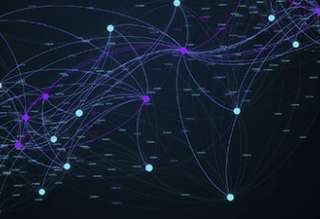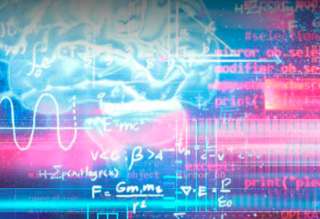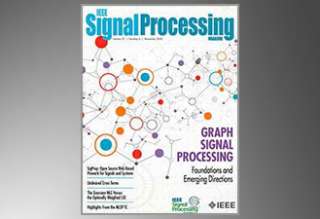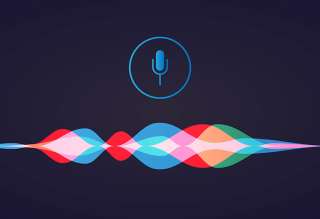SPS Feed
Top Reasons to Join SPS Today!
1. IEEE Signal Processing Magazine
2. Signal Processing Digital Library*
3. Inside Signal Processing Newsletter
4. SPS Resource Center
5. Career advancement & recognition
6. Discounts on conferences and publications
7. Professional networking
8. Communities for students, young professionals, and women
9. Volunteer opportunities
10. Coming soon! PDH/CEU credits
Click here to learn more.
The Latest News, Articles, and Events in Signal Processing
Although supervised deep learning has revolutionized speech and audio processing, it has necessitated the building of specialist models for individual tasks and application scenarios. It is likewise difficult to apply this to dialects and languages for which only limited labeled data is available. Self-supervised representation learning methods promise a single universal model that would benefit a wide variety of tasks and domains.
The papers in this special section focus on self-supervised learning for speech and audio processing. A current trend in the machine learning community is the adoption of self-supervised approaches to pretrain deep networks. Self-supervised learning utilizes proxy-supervised learning tasks (or pretext tasks) - for example, distinguishing parts of the input signal from distractors or reconstructing masked input segments conditioned on unmasked segments—to obtain training data from unlabeled corpora.
Date: 10-13 December 2023
Location: Los Sueños, Costa Rica
Date: 17-20 September 2023
Location: Rome, Italy
Date: 22-25 October 2023
Location: New Paltz, NY, USA
Submission Deadline: 3 February 2023
Call for Proposal Document
March 21-24, 2023
Location: Snowbird, UT, USA
Date: 15-17 February 2023
Registeration Deadline: N/A
Location: Pakistan
Date: 5-10 December 2022
Registeration Deadline: 25 November 2022
Location: Andhra Pradesh, India
Manuscript Due: 1 March 2023
Publication Date: July 2024
CFP Document

Audio pattern recognition is an important research topic in the machine learning area, and includes several tasks such as audio tagging, acoustic scene classification, music classification, speech emotion classification and sound event detection. In this blog, we introduce pretrained audio neural networks (PANNs) trained on the large-scale AudioSet dataset. These PANNs are transferred to other audio related tasks. We investigate the performance and computational complexity of PANNs modeled by a variety of convolutional neural networks. We propose an architecture called Wavegram-Logmel-CNN using both log-mel spectrogram and waveform as input feature.
Recent years, face recognition has made a remarkable breakthrough due to the emergence of deep learning. However, compared with frontal face recognition, many deep face recognition models still suffer serious performance degradation when handling profile faces. To address this issue, we propose a novel Frontal-Centers Guided Loss (FCGFace) to obtain highly discriminative features for face recognition. Most existing discriminative feature learning approaches project features from the same class into a separated latent subspace.
Pages
SPS Social Media
- IEEE SPS Facebook Page https://www.facebook.com/ieeeSPS
- IEEE SPS X Page https://x.com/IEEEsps
- IEEE SPS Instagram Page https://www.instagram.com/ieeesps/?hl=en
- IEEE SPS LinkedIn Page https://www.linkedin.com/company/ieeesps/
- IEEE SPS YouTube Channel https://www.youtube.com/ieeeSPS





















